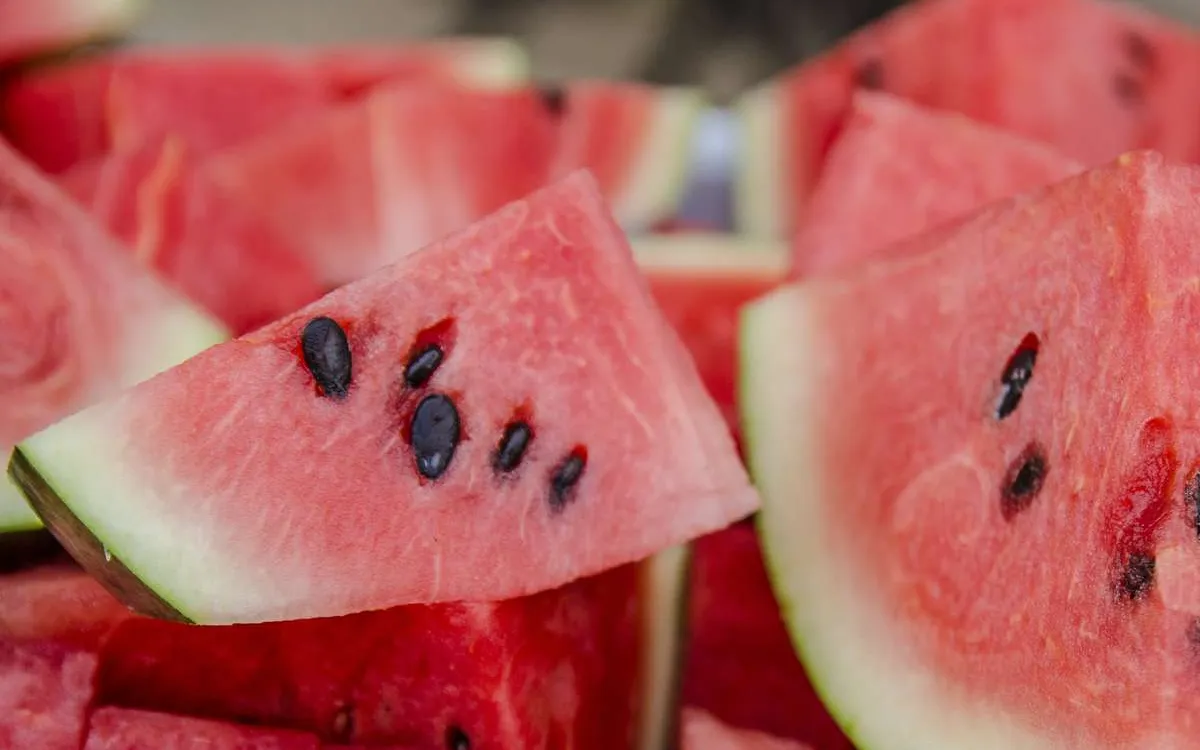
As the temperature rises, many people find themselves reaching for a refreshing slice of watermelon. This summer favorite is not just a delicious treat; it offers numerous health benefits that can help your body replenish lost fluids and stay hydrated. Here, we explore the reasons why eating watermelon regularly can enhance your overall health.
Watermelon is renowned for its exceptionally high water content—approximately 92% water. According to Stephani Johnson, DCN RD, an adjunct professor of clinical and preventive nutrition sciences at Rutgers University School of Health Professions, consuming watermelon can significantly support hydration, especially during hot weather when fluid loss through sweat is increased. “While it shouldn’t replace drinking water, watermelon can be a helpful and delicious supplement, providing hydration and fuel,” Johnson explains. This makes watermelon an ideal snack for those hot summer days.
Dehydration can lead to an electrolyte imbalance, resulting in a range of health issues, including fatigue, muscle cramps, and weakness. By incorporating watermelon into your diet, you can supplement your water intake and help your body maintain its electrolyte balance, ensuring that you stay energized and healthy.
Just one cup of diced watermelon delivers nearly 15% of the recommended daily intake of vitamin C. Additionally, it is a valuable source of vitamin A and vitamin B6, all of which play crucial roles in supporting immune function, metabolism, and overall health. In terms of nutrition, one cup of diced watermelon contains:
Carbohydrates: 12 g Dietary Fiber: 1 g Total Sugars: 9 g Protein: 1 g Calcium: 1 mg Sodium: 2 mg Iron: 2 mg Potassium: 170 mgLycopene is a powerful antioxidant found in watermelon, known for its ability to protect the body against free radical damage. Studies have linked lycopene to a reduced risk of certain cancers, heart disease, and other chronic illnesses. For the highest lycopene content, opt for watermelon varieties with bright red flesh.
Watermelon is one of the few natural sources of citrulline, an amino acid that your body converts into arginine. Arginine supports the production of nitric oxide, a compound that helps relax blood vessels and improve blood flow. Johnson notes that research suggests watermelon-derived citrulline may enhance vascular function, contributing to improved arterial elasticity and potentially lowering blood pressure.
Another benefit of watermelon is its high magnesium content. Julia Zumpano, RD, a dietitian at Cleveland Clinic, emphasizes that magnesium is essential for various enzymatic processes that support proper muscle and nerve function, as well as the regulation of blood pressure and blood sugar levels.
Before discarding watermelon seeds, consider their nutritional value. Roasted watermelon seeds are rich in magnesium, iron, zinc, and healthy fats. Johnson recommends roasting them in the oven at 350°F after coating them lightly with olive oil. You can add flavor with salt, chili powder, cinnamon, or sugar for a tasty snack.
The fiber and polyphenols found in watermelon serve as fuel for the beneficial bacteria in your gut. Zumpano highlights that these friendly bacteria are crucial for maintaining a healthy digestive tract and promoting regular bowel movements, further enhancing overall gut health.
In summary, indulging in watermelon during the hot summer months is not only a delicious way to stay cool but also a smart choice for your health. With its hydrating properties, essential vitamins, and various health benefits, watermelon is truly a nutritional powerhouse. Embrace this summertime favorite and enjoy all the ways it can support your health and wellness.